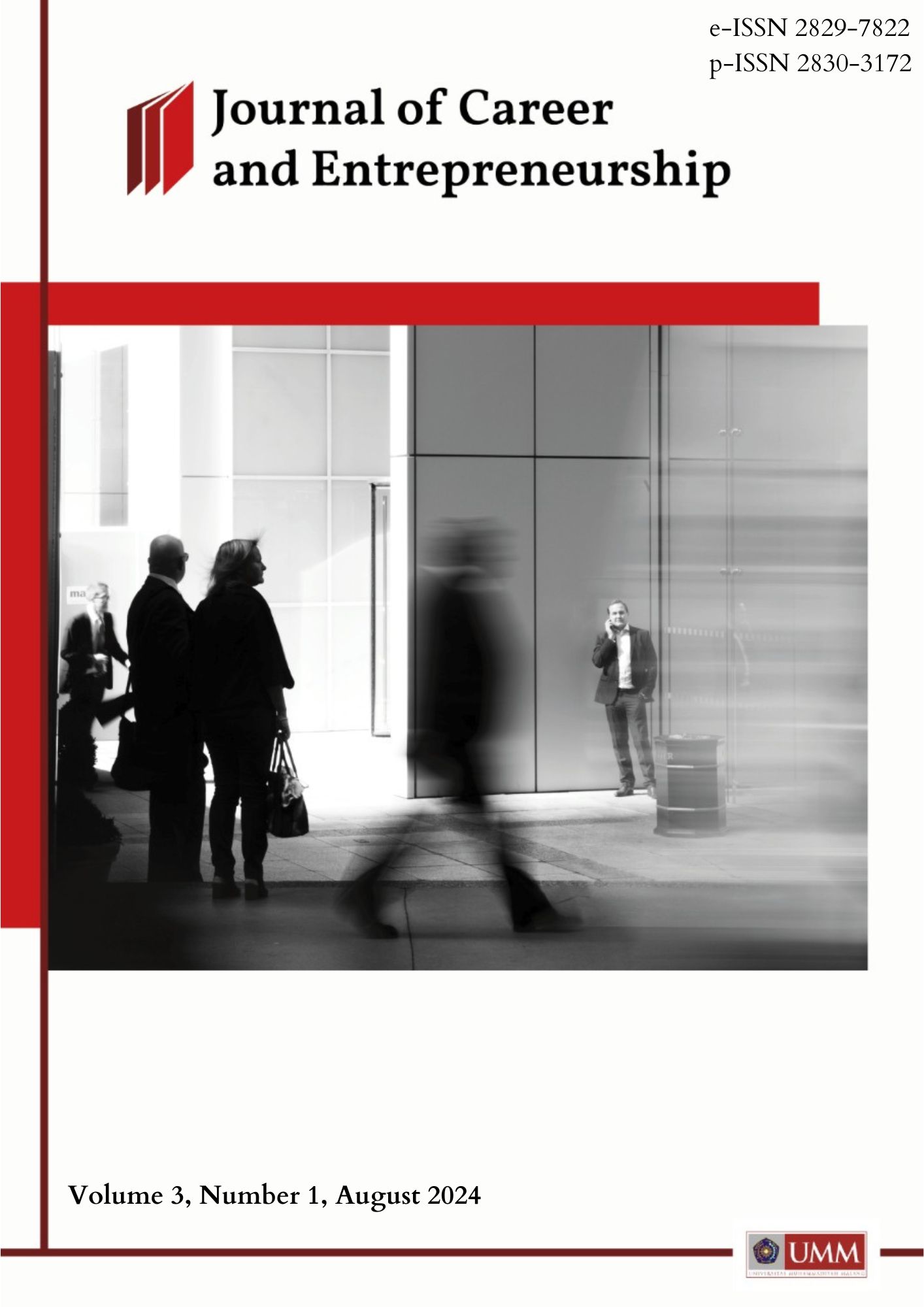Young Social Entrepreneurship: The KKN Program Leading them to be one?
DOI:
https://doi.org/10.22219/jce.v3i1.35301Keywords:
young student, social entrepreneurship, KKN program, social program, qualitative methodAbstract
This study investigates the impact of community service programs (KKN) on management and business student’s career choices as social entrepreneurs. Social entrepreneurship emphasizes sustainability and solving social problems, requiring innovative and practical approaches. The research focuses on understanding how KKN experiences influence students’ decisions to pursue social entrepreneurship careers. The methodology is narrative-based, with interviews conducted to gather in-depth participant insights. Five students who participated in KKN were selected, and their stories were analyzed to identify common themes related to social entrepreneurship. Results reveal that KKN experiences impact students’ career choices by exposing them to real-world social issues and enabling them to apply academic knowledge in practical settings. The study finds that students develop strong motivations to pursue social entrepreneurship careers through KKN, driven by their desire to solve community problems and contribute positively to society. The narratives highlight critical themes of well-being and sustainability, showcasing the transformation effect of KKN on students’ career aspirations. In conclusion, the research underscores the importance of integrating social entrepreneurship into higher education curricula, mainly through community service programs, to foster future social entrepreneurs capable of addressing societal challenges effectively.
Downloads

Downloads
Published
How to Cite
Issue
Section
License
Copyright (c) 2024 Tsabita Khwarazmita, Widhiyo Sudiyono

This work is licensed under a Creative Commons Attribution-ShareAlike 4.0 International License.
Authors who publish with Journal of Career and entrepreneurship (JCE) agree to the following terms:
- For all articles published in Journal of Career and entrepreneurship (JCE), copyright is retained by the authors. Authors give permission to the publisher to announce the work with conditions. When the manuscript is accepted for publication, the authors agree to automatic transfer of the publishing right to the publisher.
- Authors retain copyright and grant the journal right of first publication with the work simultaneously licensed under a Creative Commons Attribution-ShareAlike 4.0 International License that allows others to share the work with an acknowledgment of the work's authorship and initial publication in this journal.
- Authors are able to enter into separate, additional contractual arrangements for the non-exclusive distribution of the journal's published version of the work (e.g., post it to an institutional repository or publish it in a book), with an acknowledgment of its initial publication in this journal.
- Authors are permitted and encouraged to post their work online (e.g., in institutional repositories or on their website) prior to and during the submission process, as it can lead to productive exchanges, as well as earlier and greater citation of published wor (See The Effect of Open Access).
This work is licensed under a Creative Commons Attribution-ShareAlike 4.0 International License.





